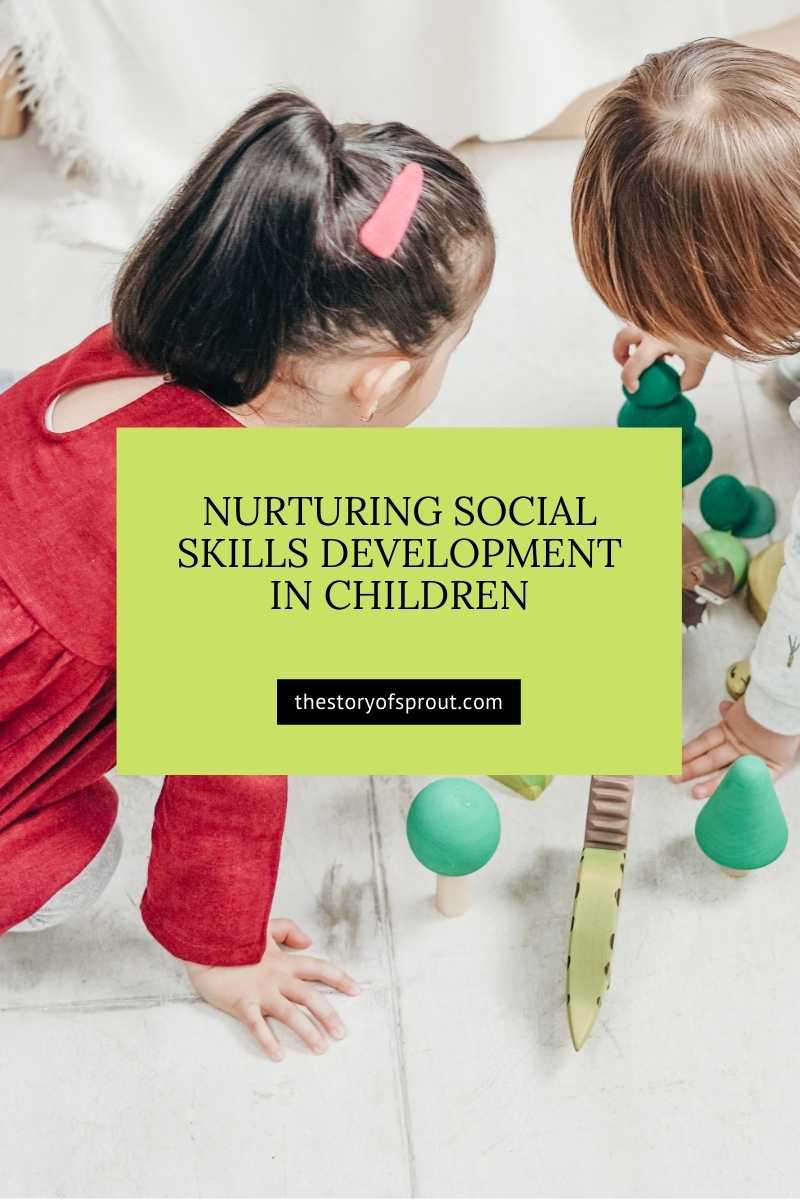
Nurturing Social Skills Development in Children
|
|
Time to read 4 min
|
|
Time to read 4 min
In the hustle and bustle of our fast-paced world, one of the most cherished gifts we can give our children is the ability to connect meaningfully with others. Social skills are the foundation of forming relationships, building empathy, and navigating the intricate dance of human interaction. Whether it's sharing toys in a sandbox or working collaboratively on a school project, these skills are essential. But how do we, as parents, teachers, and caregivers, nurture these abilities in our little ones? Let's take a warm, nostalgic journey to explore the many ways we can foster social skills development in children.
Table of contents
Empathy is the cornerstone of social skills. It's the ability to understand and share the feelings of another. Developing empathy in children starts with teaching them to recognize their own emotions and the emotions of others.
Daily routines are filled with opportunities to develop social skills. Mealtime, for example, is a perfect time to practice manners, turn-taking, and conversation skills.
Even with the best preparation, children will face social challenges. Conflicts with friends, feelings of exclusion, and misunderstandings are all part of growing up. Our role is to guide them through these experiences, helping them develop resilience and problem-solving skills.
When conflicts arise, it's tempting to step in and solve the problem for our children. However, it's more beneficial to coach them through the process. This way, they learn how to resolve conflicts on their own.
Strategies for Conflict Resolution:
Stay Calm: Model calm behavior when conflicts arise.
Listen First: Encourage your child to listen to the other person's perspective before responding.
Find Solutions Together: Help them brainstorm ways to resolve the issue, emphasizing compromise and empathy.
Stories and family traditions play a significant role in teaching social skills. They provide a context for children to understand social norms and values. Bedtime stories about friendships, tales of kindness, and family rituals like Sunday dinners all contribute to a child's social education.
Reading together not only improves literacy but also teaches social skills. Stories often involve characters facing social dilemmas, making them perfect for discussing social strategies and empathy.
Tips for Using Stories:
Choose Stories with Strong Social Themes: Look for books that highlight friendship, cooperation, and empathy.
Discuss the Story: After reading, talk about what the characters did right or wrong and what your child might have done differently.
Create Your Own Stories: Make up stories together where your child can decide how characters should behave in different social situations.
As we look back on our own childhoods, we can see the moments that shaped our social skills. From those sun-soaked days of playing tag to the cozy family dinners where we learned to listen and share, these experiences are invaluable. Today, as parents and caregivers, we have the opportunity to create similar moments for our children.
Encouraging social skills development is a journey filled with play, empathy, routines, and stories. It's about being present, modeling good behavior, and guiding our children through their social challenges. As we embark on this journey with our children, we not only help them build strong relationships but also create cherished memories that will last a lifetime.
Thank you for joining me in this exploration of nurturing social skills. I'd love to hear about your experiences and tips! Please leave a comment below and share how you foster social skills in your children. Let's continue this conversation and support each other in raising socially skilled and empathetic children.
